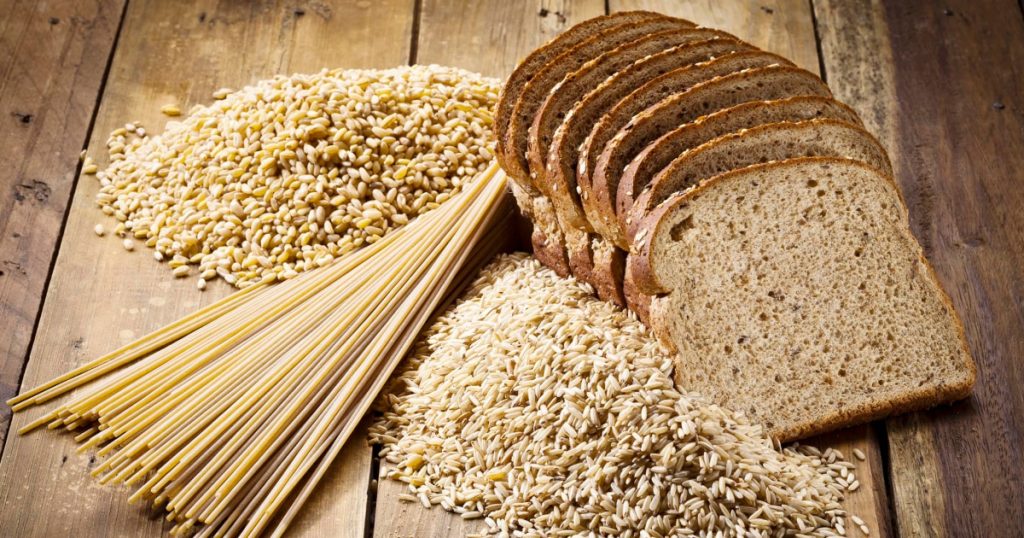Whole grains are significantly healthier for you than refined grains, as they contain all three parts of the wheat plant, including the bran, germ, and endosperm, which house important nutrients like antioxidants, protein, fiber, and B vitamins. On the other hand, refined grains like white rice or white bread are missing one or more of these parts, making them less nutritious. The USDA recommends that at least three servings of whole grains are consumed daily, as they contribute a significant portion of fiber to the diet, a nutrient that most Americans lack in their daily intake.
There is a wide variety of whole grains to choose from, including well-known ones such as whole wheat bread and oats, as well as lesser-known ones like amaranth, einkorn, and farro. While it is difficult to pinpoint one whole grain as the healthiest, oats stand out due to their high fiber and protein content, as well as their affordability and versatility. Oats contain a special fiber called beta-glucan, which has been linked to lowering LDL cholesterol levels and promoting gut health. Other whole grains like amaranth, sorghum, and teff also offer unique properties such as high protein content, gluten-free options, and beneficial nutrients like calcium and iron.
Whole grains are beneficial for weight loss due to their high protein and fiber content. Protein helps build lean muscle mass, control appetite, and regulate hunger between meals, while fiber stays in the stomach longer, increasing feelings of fullness and aiding in weight maintenance. Contrary to popular belief, research shows that consuming whole grains is associated with less weight gain over time when compared to refined grains. Substituting refined grains with whole grains can have a positive impact on weight loss and maintaining a healthy weight.
Whole grains are versatile and can be incorporated into a variety of recipes for breakfast, snacks, lunch, dinner, and even desserts. From oatmeal for breakfast to amaranth porridge for dinner, there are countless ways to enjoy whole grains in your meals. With their numerous health benefits, including improved digestion, reduced risk of chronic diseases, and support for weight loss, whole grains are an essential part of a balanced and healthy diet. Making half of your daily grain intake whole grains is recommended by the USDA to ensure you are getting the necessary nutrients and fiber for overall well-being.


